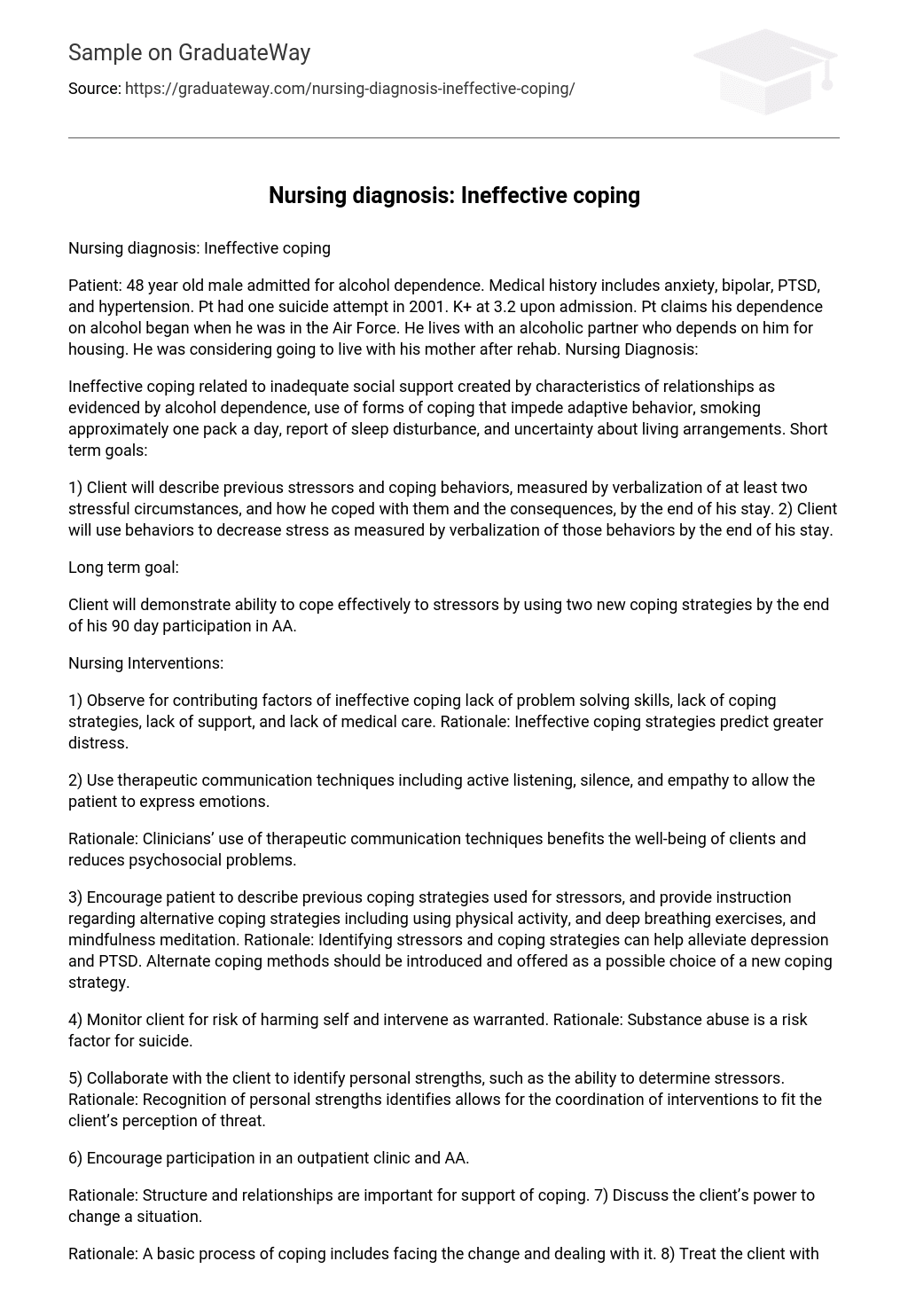Patient: 48 year old male admitted for alcohol dependence. Medical history includes anxiety, bipolar, PTSD, and hypertension. Pt had one suicide attempt in 2001. K+ at 3.2 upon admission. Pt claims his dependence on alcohol began when he was in the Air Force. He lives with an alcoholic partner who depends on him for housing. He was considering going to live with his mother after rehab. Nursing Diagnosis:
Ineffective coping related to inadequate social support created by characteristics of relationships as evidenced by alcohol dependence, use of forms of coping that impede adaptive behavior, smoking approximately one pack a day, report of sleep disturbance, and uncertainty about living arrangements. Short term goals:
1) Client will describe previous stressors and coping behaviors, measured by verbalization of at least two stressful circumstances, and how he coped with them and the consequences, by the end of his stay. 2) Client will use behaviors to decrease stress as measured by verbalization of those behaviors by the end of his stay.
Long term goal:
Client will demonstrate ability to cope effectively to stressors by using two new coping strategies by the end of his 90 day participation in AA.
Nursing Interventions:
1) Observe for contributing factors of ineffective coping lack of problem solving skills, lack of coping strategies, lack of support, and lack of medical care. Rationale: Ineffective coping strategies predict greater distress.
2) Use therapeutic communication techniques including active listening, silence, and empathy to allow the patient to express emotions.
Rationale: Clinicians’ use of therapeutic communication techniques benefits the well-being of clients and reduces psychosocial problems.
3) Encourage patient to describe previous coping strategies used for stressors, and provide instruction regarding alternative coping strategies including using physical activity, and deep breathing exercises, and mindfulness meditation. Rationale: Identifying stressors and coping strategies can help alleviate depression and PTSD. Alternate coping methods should be introduced and offered as a possible choice of a new coping strategy.
4) Monitor client for risk of harming self and intervene as warranted. Rationale: Substance abuse is a risk factor for suicide.
5) Collaborate with the client to identify personal strengths, such as the ability to determine stressors. Rationale: Recognition of personal strengths identifies allows for the coordination of interventions to fit the client’s perception of threat.
6) Encourage participation in an outpatient clinic and AA.
Rationale: Structure and relationships are important for support of coping. 7) Discuss the client’s power to change a situation.
Rationale: A basic process of coping includes facing the change and dealing with it. 8) Treat the client with courtesy and respect. Take advantage of teachable moments. Rationale: This enhances the therapeutic relationship and makes the most of the client’s stay. (Ackley & Ladwig, 2010) References
Ackley, B. J., & Ladwig, G. B. (2010). Nursing diagnosis handbook: An evidence-based guide to planning care. Maryland Heights, MO: Mosby.





